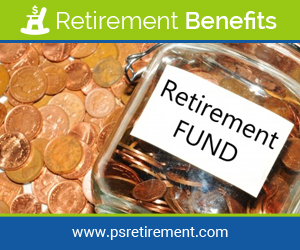Here are Six Benefits of a 401(k) Plan You May Not Know

As traditional pensions gradually phase out, the gap is being filled by 401(k) plans. 401(k)s have become the primary retirement savings plan for American employees. According to Jodan Ledford, CEO of Smart USA, “having a 401(k) account is important.” Ledford based his assertion on the data that shows that individuals with retirement plans save more.
The 2020 Retirement Confidence Survey by EBRI found that 51% of retirees with a retirement plan had at least $250,000 saved, while only 5% of those without a goal had that much.
One reason why workplace plans are so important is that employers often offer matching contributions which boost employees’ retirement savings. Several other lesser-known benefits of a 401(k) plan would appeal to an employee. Here are six of them.
Multiple Tax Benefits
Depending on the plan offered by your employer, you may be able to choose to pay your taxes now or later. Contributions to traditional 401(k) accounts are tax-deductible up to $19,500 in 2021, and $26,000 for individuals aged 50 and above. With a tax-deferred strategy, you get to pay the taxes when making withdrawals at retirement. You will, however, also be required to make a required minimum distribution (RMD) once you reach age 72.
Some employers also offer Roth 401(k) plans. Contributions to these plans are tax-deductible, and as such, there’s no RMD, and your money would be tax-free at retirement.
Both accounts have their advantages, but you have to choose based on your situation. With the uncertainty in tax rates, younger workers should forgo tax deferrals and choose a Roth IRA.
After-Tax Contributions
In addition to tax-advantage and Roth 401(k)s, workers have the option to make after-tax contributions, which opens up more saving opportunities. The first after-tax strategy is known as a ‘mega backdoor” Roth. In 2021, employees are allowed up to $58,000 in employee contributions and $64,500 for individuals age 50 and above. Those with income lower than the limits are restricted to 100% of their income.
Assuming you max out your tax-advantage contributions, you can make up to $38,500 in after-tax retirement contributions, depending on if and how much your employer matches. Assuming your employer offers an after-tax plan, you can transfer the funds in it to a Roth IRA so that future gains can be withdrawn tax-free.
However, only a few employees have the financial resources to make that much in contributions, which is why the backdoor Roth 401(k) may not be so popular. However, it’s a valuable tool available to savers.
Some plans offer automatic after-tax contributions that can be used as emergency funds and can be accessed anytime without paying any fees or penalties.
Financial Safeguards
All 401(k) plans must follow the Employee Retirement Income Security Act (ERISA). It requires that employers offer plans that are in their employee’s best interest. Plan administrators aren’t allowed to push investment plans to maximize profit. They must also disclose all essential details like administrative charges and historical fund performance to enable employees to make an informed decision. Another benefit of the ERISA is that it protect retirement assets from creditors. However, the protection doesn’t extend to federal income taxes or criminal fines.
Automatic Enrollment
Most companies offer automatic enrollment to 401(k) plans for new employees. This keeps workers from procrastinating, allowing them to start saving as early as possible. According to a study by Vanguard, 92% of new hires in companies with automatic 401(k) enrollment are saving for retirement, while only 47% of recruits in companies that don’t have auto-enroll are saving for retirement.
Loans and Early Withdrawals
Making withdrawals from 401(k) accounts comes with a 10% penalty so that you can take a loan from your 401(k) instead. The loan is usually capped at 50% of the balance and can be paid back using conventional payroll deductions.
However, if you leave your job, you must pay the loan before the next tax filing; otherwise, it may become taxable and subject to the 10% penalty.
A Major Incentive To Stay On The Job
Experts say 401(k)s are amongst the things employees consider when deciding whether to take, stay or leave a job. Small businesses can now offer their employees 401(k) plans by taking advantage of pooled plans.
In conclusion, a 401(k) plan comes with immense benefits to employees. Not only does it provide valuable tax incentives, but it also offers options to enable you to make smart financial decisions.






